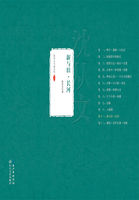[NOTE by Engels to 1885 German edition: This was perfectly correct for the year 1847 [when Marx wrote these lines]. At that time the world trade of the United State was limited mainly to import of immigrants and industrial products, and export of cotton and tobacco, i.e., of the products of southern slave labor. The Northern States produced mainly corn and meat for the slave states. It was only when the North produced corn and meat for export and also became an industrial country, and when the American cotton monopoly had to face powerful competition, in India, Egypt, Brazil, etc., that the abolition of slavery became possible. And even then this led to the ruin of the South, which did not succeed in replacing the open Negro slavery by the disguised slavery is Indian and Chinese coolies. ]
Thus slavery, because it is an economic category, has always existed among the institutions of the peoples. Modern nations have been able only to disguise slavery in their own countries, but they have imposed it without disguise upon the New World.
What would M. Proudhon do to save slavery? He would formulate the problem thus: preserve the good side of this economic category, eliminate the bad.
Hegel has no problems to formulate. He has only dialectics. M.
Proudhon has nothing of Hegel's dialectics but the language. for him the dialectic movement is the dogmatic distinction between good and bad.
Let us for a moment consider M. Proudhon himself as a category.
Let us examine his good and bad side, his advantages and his drawbacks.
If he has the advantage over Hegel of setting problems which he reserves the right of solving for the greater good of humanity, he has the drawback of being stricken with sterility when it is a question of engendering a new category by dialectical birth-throes. What constitutes dialectical movement is the coexistence of two contradictory sides, their conflict and their fusion into a new category. The very setting of the problem of eliminating the bad side cuts short the dialectic movement.
It is not the category which is posed and opposed to itself, by its contradictory nature, it is M. Proudhon who gets excited, perplexed and frets and fumes between the two sides of the category.
Caught thus in a blind alley, from which it is difficult to escape by legal means, M. Proudhon takes a real flying leap which transports him at one bound into a new category. Then it is that, to his astonished gaze, is revealed the serial relation in the understanding .
He takes the first category that comes handy and attributes to it arbitrarily the quality of supplying a remedy for the drawbacks of the category to be purified. Thus, if we are to believe M. Proudhon, taxes remedy the drawbacks of monopoly; the balance of trade, the drawbacks of taxes; landed property, the drawbacks of credit.
By taking the economic categories thus successively, one by one, and making one the antidote to the other, M. Proudhon manages to make with this mixture of contradictions and antidotes to contradictions, two volumes of contradictions, which he rightly entitles: The System of Economic Contradictions .
Fifth Observation "In the absolute reason all these ideas... are equally simple, and general.... In fact, we attain knowledge only by a sort of scaffolding of our ideas. But truth in itself is independent of these dialectical symbols and freed from the combinations of our minds."(Proudhon, Vol.II, p.97)
Here all of a sudden, by a kind of switch-over of which we now know the secret, the metaphysics of political economy has become an illusion! Never has M. Proudhon spoken more truly. Indeed, from the moment the process of the dialectic movement is reduced to the simple process of opposing good to bad, and of administering one category as an antidote to another, the categories are deprived of all spontaneity; the idea "ceases to function";there is no life left in it. It is no longer posed or decomposed into categories.
The sequence of categories has become a sort of scaffolding. Dialectics has ceased to be the movement of absolute reason. There is no longer any dialectics but only, at the most, absolutely pure morality.
When M. Proudhon spoke of the series in the understanding, of the logical sequence of categories, he declared positively that he did not want to give history according to the order in time, that is, in M.
Proudhon's view, the historical sequence in which the categories have manifested themselves. Thus for him everything happened in the pure ether of reason.
Everything was to be derived from this ether by means of dialectics. Now that he has to put this dialectics into practice, his reason is in default.
M. Proudhon's dialectics runs counter to Hegel's dialectics, and now we have M. Proudhon reduced to saying that the order in which he gives the economic categories is no longer the order in which they engender on e another. Economic evolutions are no longer the evolutions of reason itself.
What then does M. Proudhon give us? Real history, which is, according to M. Proudhon's understanding, the sequence in which the categories have manifested themselves in order of time? No! History as it take place in the idea itself? Still less! That is, neither the profane history of categories, nor their sacred history! What history does he give us then? The history of his own contradictions. Let us see how they go, and how they drag M.
Proudhon in their train.
Before entering upon this examination, which gives rise to the sixth important observation, we have yet another, less important observation to make.
Let us admit with M. Proudhon that real history, history according to the order in time, is the historical sequence in which ideas, categories and principles have manifested themselves.
Each principle has had its own century in which to manifest itself.















